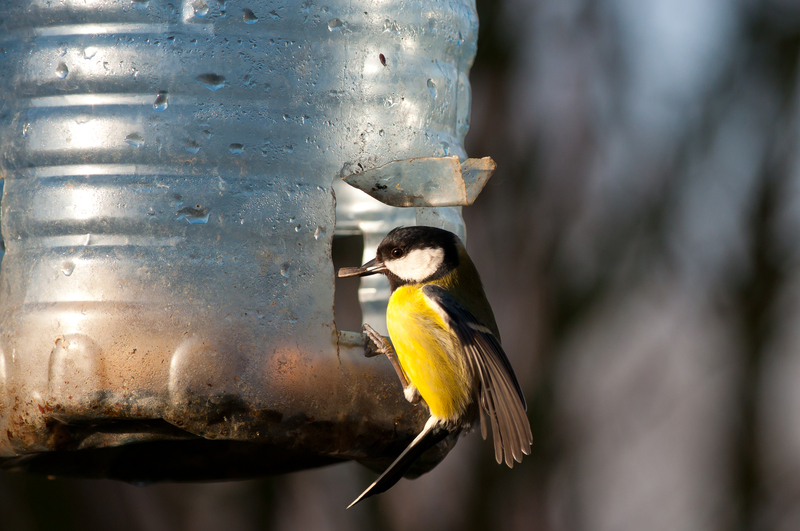Eco-Savvy Approaches to Reduce Plastic Use: A Comprehensive Guide
Plastic pollution has grown into a daunting global environmental crisis, impacting our oceans, wildlife, and even human health. Fortunately, with eco-savvy approaches and a conscious lifestyle, it is realistic for individuals, businesses, and communities to dramatically reduce plastic use in daily life. This article delves deeply into eco-friendly strategies, offering you practical, effective, and innovative tips to embrace a plastic-free life while helping the planet thrive.

Why Should We Reduce Plastic Use?
The surge in plastic consumption over the past few decades has led to grave environmental consequences. From marine animals ingesting microplastics to landfills overflowing with non-biodegradable debris, the need to address plastic pollution is more urgent than ever. Here's why reducing plastic usage matters:
- Protects Wildlife: Reducing plastic minimizes accidental ingestion and entanglement of animals.
- Preserves Natural Resources: Less plastic means lower oil and gas consumption for production.
- Mitigates Climate Change: Manufacturing and disposing of plastic releases greenhouse gases.
- Promotes Health: Fewer plastics mean reduced chemical exposure for people and animals.
By adopting eco-savvy approaches, you become part of a growing community making a tangible impact on our planet's well-being.
Understanding the Scope of Plastic Waste
Globally, over 380 million tons of plastic are produced annually, with less than 10% being recycled. The rest either ends up in landfills, incinerators, or scattered throughout our environment. Single-use plastics--such as bags, bottles, cutlery, and packaging--are among the most pervasive pollutants.
Plastic pollution can persist in the environment for centuries, breaking down into dangerous microplastics that contaminate ecosystems and food chains.
Types of Plastics You Encounter Daily
- Single-Use Plastics: Bags, straws, food wrappers, and beverage bottles.
- Packaging: Shipping materials, takeout containers, blister packs.
- Personal Care Items: Shampoo bottles, toothbrushes, razors.
- Household Goods: Cleaning product containers, disposable utensils.
Eco-Conscious Shopping: Rethink the Way You Buy
One of the most effective eco-savvy approaches to reduce plastic use is targeting how you shop. Your choices at the supermarket can influence demand, shaping a more sustainable marketplace.
1. Opt for Reusable Bags and Containers
- Bring tote bags, produce bags, and reusable containers when shopping. These alternatives eliminate the need for single-use plastic bags and packaging.
- Choose glass, stainless steel, bamboo, or silicone containers for food storage, promoting a circular lifestyle.
2. Ditch Single-Use Plastics
- Refuse plastic cutlery, straws, and cups when ordering takeout or at events.
- Support cafes and vendors that offer compostable or reusable alternatives.
3. Buy in Bulk
- Choose bulk food stores that allow you to bring your own containers, drastically cutting down on excess packaging.
- Buying in bulk also reduces food waste and often saves money.
4. Prioritize Naked Produce
- Select unpackaged fruits and vegetables to minimize plastic waste.
- If plastic packaging is unavoidable, consider writing to your supermarket and urging policy changes.
At Home: Daily Habits for Reducing Plastic Use
Making your home a plastic-free sanctuary is easier than you think. Start with simple swaps that add up to big environmental savings:
1. Sustainable Kitchen Swaps
- Replace cling film with beeswax wraps, fabric covers, or reusable silicone lids.
- Use dishwashing bars or refill stations for liquid soap to avoid plastic bottles.
- Choose wooden or metal utensils over plastic ones.
- Switch to bar soap and shampoo bars instead of liquid soaps in plastic containers.
2. Eco-Conscious Bathroom Practices
- Discover bamboo toothbrushes and biodegradable floss as sustainable alternatives.
- Avoid microbeads--tiny plastics found in some cosmetic and cleaning products.
- Refill your favorite lotions and cleansers at dispensaries that support bulk, package-free sales.
3. Smart Laundry and Cleaning Choices
- Choose laundry strips, powder, or soapnuts instead of liquid detergents in plastic bottles.
- Adopt bulk-buy or refillable cleaning sprays, using glass or durable plastic spray bottles for reuse.
- Switch to plant-based scrubbers and sponges instead of synthetic ones made of plastic.
On the Go: Reducing Plastic in Your Busy Lifestyle
When you're outside your home, make it a habit to plan ahead and avoid convenience plastics. Here's how:
1. Carry a Reusable Water Bottle and Coffee Cup
- Invest in a high-quality stainless steel or glass bottle for drinks on the go.
- Many coffee shops offer discounts for bringing your own cup, saving money and plastic!
2. Zero-Waste Travel Kits
- Pack a reusable cutlery set, napkin, and straw in your daily bag.
- Bring a small, foldable tote for impromptu shopping trips or takeaways.
3. Mindful Eating Out
- Choose restaurants that use biodegradable packaging or serve food without disposable plastics.
- Ask for no straw and for your meal to be served on real plates, not in plastic containers, whenever possible.
Innovative & Eco-Savvy Technologies Helping to Reduce Plastic Use
Advancements in technology are fueling new methods to replace traditional plastics without sacrificing convenience or performance.
- Bioplastics and Compostable Materials: Derived from cornstarch, sugarcane, or algae, these materials decompose safely, reducing landfill waste.
- Edible Packaging: Packaging made from seaweed, rice, or potato starch can often be eaten or composted after use.
- Plastic-Free Glitter and Microbead Alternatives: Companies now offer plant-based glitters and scrubs instead of plastic versions.
Community Initiatives and Business Solutions
- Support local and global campaigns like "Plastic Free July" and beach cleanup drives.
- Advocate for plastic-free policies in schools, offices, and government settings.
- Choose to support businesses that prioritize zero-waste packaging and sustainable supply chains.
Plastic-Free Parenting: Raising a Generation of Eco-Warriors
Teaching children to value the environment and reduce plastic use from an early age sets the stage for lasting change.
- Pack eco-friendly school lunches in reusable containers and beeswax wraps.
- Favor wooden, fabric, or recycled toys over plastic ones.
- Engage your family in upcycling crafts and educational activities about waste reduction.
- Explain the reasons for going plastic-free in engaging, age-appropriate ways.
How to Tackle Recycling: A Realistic Overview
While recycling remains vital, it is not the sole solution to the plastic crisis. Many types of plastic are either hard to recycle or not accepted by local programs. Eco-savvy individuals know that the best strategy is to refuse unnecessary plastic before relying on recycling.
Recycling Smarter
- Familiarize yourself with local recycling codes and guidelines.
- Rinse containers before recycling to prevent contamination.
- Avoid recycling soft plastics unless specifically accepted in your area.
- Stay informed about new deposit schemes and recycling projects in your community.
Supporting Policy Change for a Broader Impact
Individual actions are powerful, but collective advocacy is necessary for sustained change. Here are ways you can encourage widespread reduction of plastic use:
- Write to elected officials in support of bans or taxes on single-use plastics.
- Encourage workplaces and schools to adopt plastic reduction policies.
- Promote and attend community workshops about eco-savvy, plastic-free lifestyles.
- Support or join organizations at the forefront of the zero-waste movement.
Your Eco-Friendly Journey Starts Now
Adopting eco-savvy approaches to reduce plastic use is a journey that starts with a single conscious choice. Whether you're swapping plastic straws for metal ones, shopping in bulk, or advocating for change, every step counts toward a cleaner, healthier future.
- Remember: Small changes, when embraced collectively, create a powerful wave of positive impact.
- Share your plastic-free successes and challenges with friends and family to inspire a broader movement.
- Stay curious: Seek out the latest green products, local initiatives, and global campaigns.
Together, we can lead the transition to a world where plastic-free living is the norm, not the exception. By educating ourselves and others, making mindful choices, and supporting systemic change, we pave the way for a healthier environment and a more sustainable future for generations to come.

Frequently Asked Questions on Eco-Savvy Plastic Reduction
1. What are the easiest ways to start reducing plastic use today?
- Carry a reusable water bottle, coffee cup, and shopping bags daily.
- Avoid single-use plastics like straws, cutlery, and takeaway containers.
2. Are compostable plastics an eco-friendly solution?
- Compostable plastics are better than conventional ones but must be disposed of correctly to break down fully.
- Whenever possible, prioritize reusable options over any disposables.
3. How can I influence my community to adopt eco-savvy habits?
- Lead by example and share your experiences with plastic reduction.
- Organize educational workshops, participate in cleanups, and support local eco-friendly initiatives.
Final Thoughts: The Ripple Effect of Change
Reducing plastic use isn't just about saving the planet--it's about safeguarding our health, nurturing responsible consumption, and empowering future generations. Your choices matter. Start today, and watch your eco-savvy habits inspire those around you!
Together, through mindful actions and informed choices, we can achieve a truly sustainable, plastic-free world.